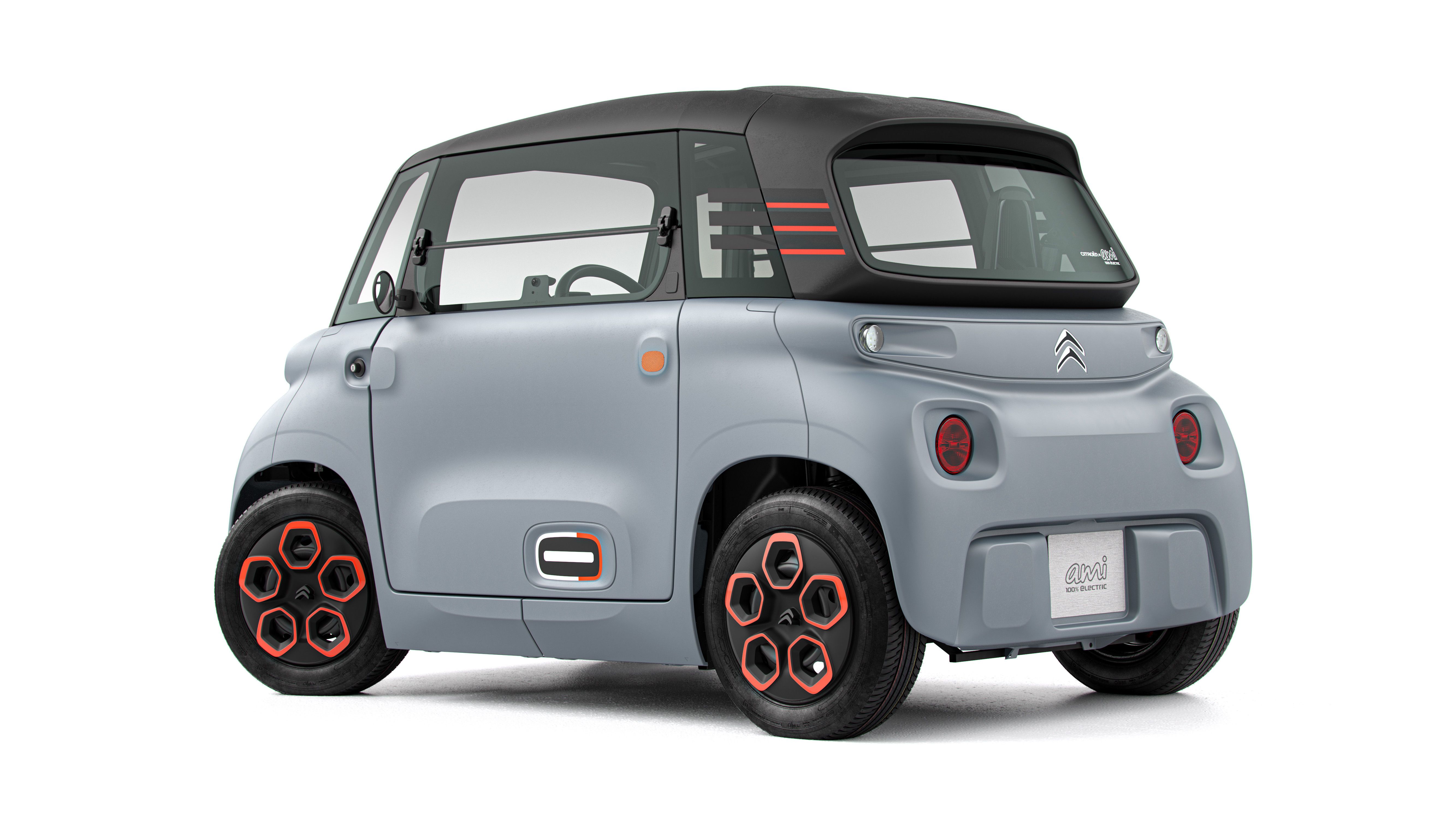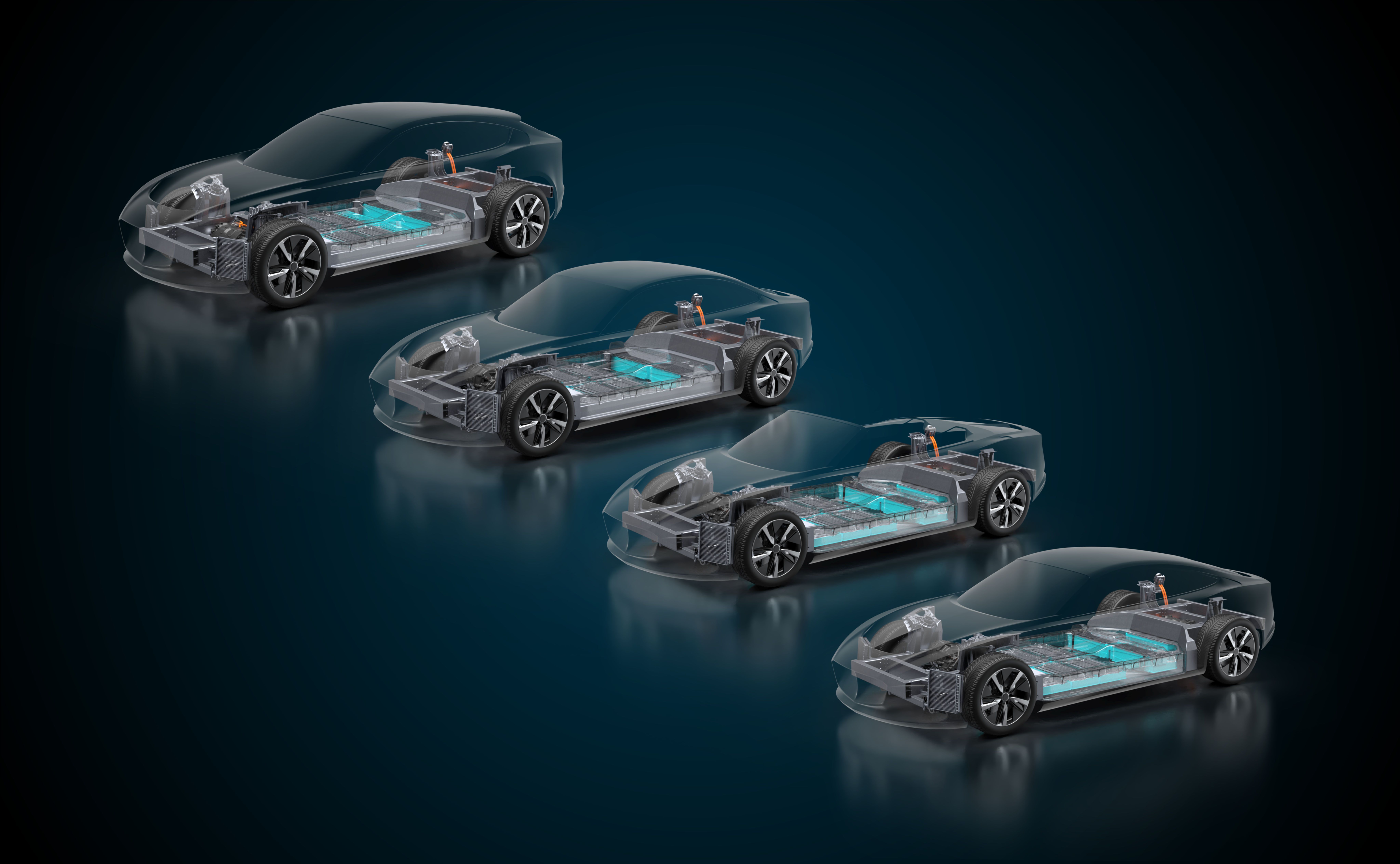| If you have trouble reading this message, view it in a browser. This week a third-party EV platform is unveiled, Uber drivers may get their own EV, a Tesla range test reaches a new high, and the electric F-150 gets a name. But first: Even with Stellantis' control of Citroën, we didn't really expect to see any of its cars stateside, especially under its own badge. But that's exactly what the Washington, DC, area will get when Citroën's Ami—a $6,000 EV offered in Europe—makes its way here thanks to Free2Move, which is a subscription and car-sharing service run by automaker PSA. The service, which has plans to spread to Los Angeles and Portland soon, will offer the small EV as part of a trial program, so this doesn't mean you'll actually be able to buy one. The tiny EV is just 7.8 feet long and is powered by a 5.5-kWh battery, giving it a range of about 44 miles on a full charge. It won't be able to go too far from a charging station—and it won't be able to get anywhere particularly fast, boasting a top speed of 28 mph. . Free2Move's fleet will be composed mostly of familiar vehicles, like the Jeep Wrangler. Free2Move didn't indicate what a successful outcome of this test could look like—perhaps more Amis for other cities—but its main fleet will actually be composed of familiar FCA vehicles like the Jeep Wrangler. Car-sharing services and subscription services have had a rough start in the US, with a number of automakers pulling the plug on their ventures after a few years. Whether small EVs will offer other automakers a distinctly different experience when it comes to profitability is still an unanswered question, but it's worth noting that this form of "mobility service" hasn't been wildly successful as an industry over the past decade. Williams and Italdesign launch their own EV platform. Speaking of new players in the EV field, Williams Advanced Engineering and Italdesign have teamed up—quite unexpectedly, we might add—to create a modular EV platform for sport cars, sedans, and crossovers. Specifically, the two are focusing on offering a platform to manufacturers, effectively acting as a supplier of engineering and design services, as well as powertrain technology. The EVX platform that features a structural battery to medium- and small-volume manufacturers, suitable for rear- and all-wheel-drive layouts. The platform itself is aimed at relatively large battery sizes: between 104 and 120-kWh. In effect, the two companies seek to play the role that Magna Steyr has played in showcasing its EV platform in the Sony show car about a year ago—demonstrating its engineering know-how to automakers seeking to field new EVs.  Arrival is designing a passenger EV for Uber drivers with input from the drivers themselves, with plans to enter production in 2023. Uber plans to go EV-only in London by 2025, and is focusing on providing incentives to drivers and passengers to favor to EVs. The start-up has been contracted to build electric vans for UPS. In our highway fuel-economy testing, a Tesla Model S Long Range Plus went 320 miles at an average speed of 75 mph. This is the first EV that's broken the 300-mile barrier in our range testing. The model has the same 100.0-kWh battery pack as its predecessors, such as the Model S 100D, which went 270 miles in the same test. Tesla unlocked the extra range with a series of efficiency-minded modifications to the rest of the car.
|
Friday, May 7, 2021
Tiny Citroën EV debuts in the US (sort of)
Your Next Addition to Your Collection Is here
It's all at sonicbidder.com
| ||||||||||||||||||||||||||||||||||||||||||||||||||||||||||||||||||||||||||||||||||||||||||||||||||||||||||||||||||||||||||||||||||||||||||||||||||||||||||||||||||||||||||||||||||||||||||||||||||||||||||||||||||||||||||||||||||
Subscribe to:
Posts (Atom)


















